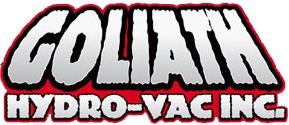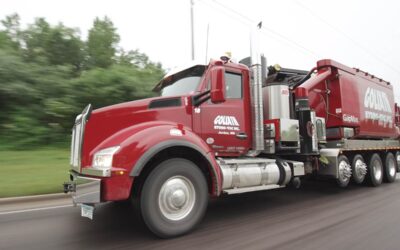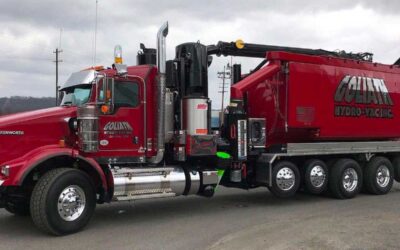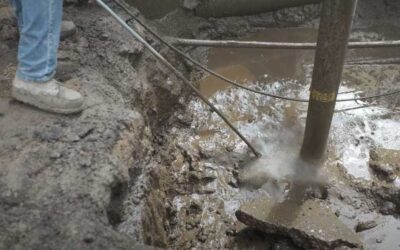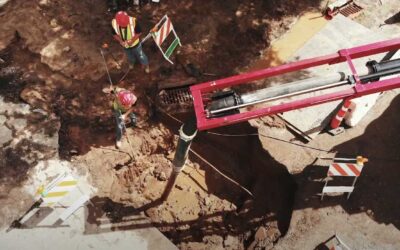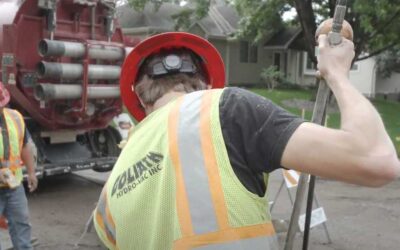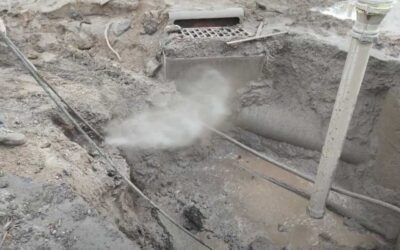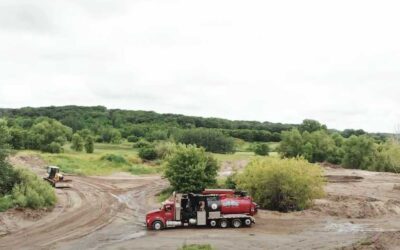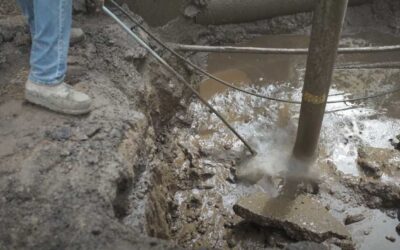Hydro Vacuum vs Air Vacuum Excavation: Pros & Cons
At first glance, hydro vacuum excavation and air vacuum excavation are confusingly similar. After all, their names are only one word apart. They both use vacuum suction to remove dirt. And they both excel at safely excavating utility lines.
These similarities have left some thinking the two methods are the same. But this is absolutely not true. Hydro vacuum excavation and air vacuum excavation have very different strengths and weaknesses.
To choose the right method, you need to consider factors like:
- Soil composition
- Soil consistency
- Site location
- Project budget
This blog will break down the pros and cons of each method. At the end, you can decide which of these utility-safe excavation methods is right for your project.
What is Vacuum Excavation?
First let’s talk about what both methods have in common. Of course, they both rely on vacuums to remove soil and deposit it in a debris tank. However, on its own, the vacuum isn’t effective at removing solid earth. That’s where ‘hydro’ and ‘air’ come in. They’re the different techniques used to break up the soil so it can be easily sucked away.
Another thing both methods have in common: They’re considered safe to use over utilities. This is because they don’t damage the lines the way an excavator does. They also don’t expose workers to unnecessary risks the way hand digging does.
Now, on to what makes these two methods of vacuum excavation so distinctly different.
Air Vacuum Excavation Overview
In air vacuum excavation, a concentrated jet of air is aimed at the soil to break it up. This jet is directed manually with a long wand, controlled by the user.
Pros of Air Vacuum Excavation
Perhaps the biggest pro of air vacuuming comes from the condition of the soil after it’s been sucked up. Because the process only uses air, the soil can be immediately reused as backfill if desired. This can save both time and money.
Another pro of air vacuums is that they never run out of air. They’ll simply go on breaking up soil until their debris reservoir is full. This can be another substantial time saver under the right conditions.
Cons of Air Vacuum Excavation
Unfortunately, the effectiveness of air excavation depends on the type of soil being removed. It does best with dry, loose sediments without large rocks. The denser, harder, and rockier things are, the slower air vacuuming will go.
This means air vacuum excavation takes more time than hydro vacuum excavation. More time means more money. When the soil is bad, labor costs can outpace the savings gained by not having to transport additional backfill material.
Finally, air vacuum excavation isn’t considered suitable for removing contaminated soils. Even with the vacuum hose, dust is inevitable when an air jet is being used. Dust can cause contaminants to become airborne and spread beyond the excavation site.
Hydro Vacuum Excavation Overview
Hydro vacuum excavation replaces the jet of air with a jet of pressurized water, delivered via a reservoir tank that’s usually mounted on a truck. The water hose is manually controlled by the user, just like in air vacuum excavation, allowing for excellent precision.
Pros of Hydro Vacuum Excavation
Water is much more effective at loosening soil than air, making hydro vacuum effective on a much wider variety of sediments. It can handle even dense and hard-packed soils very quickly. This means significant time savings vs. air excavation.
Hydro excavation is also excellent for removing contaminated soils. The water prevents dust from migrating off-site, while the precise nature of the jet makes it easy to excavate only affected areas. Once excavated, all the contaminated soil is contained in the debris tank, making removal as easy as stowing the hose and driving away.
Cons of Hydro Vacuum Excavation
Hydro vacuum excavation requires water, which must be transported to the site and re-filled whenever it runs out. This can require work pauses on very large excavation projects, or on projects where the water refill site is far away.
Similarly, the dumping process can also cause delays. Once the debris tank is full, the slurry inside can’t simply be released as back fill. It needs to be taken to a designated dumping site. Then, any necessary backfill material needs to be sourced and transported in.
How to Choose Between Hydro Vacuum Excavation and Air Vacuum Excavation
If you want utility-safe, fast, and efficient excavation, you really can’t beat vacuum excavation. To choose the right vacuum method, consider this summary of the pros and cons:
Air Vacuum Excavation
- Pro: Air is an infinite resource.
- Pro: Vacuumed soils can be immediately reused as backfill.
- Con: Less effective when soils are sub-optimal.
- Con: Slower than Hydro Vacuum Excavation.
- Con: Not suitable to remove contaminated soil.
Hydro Vacuum Excavation
- Pro: Effective on almost any soil type, including dense soils.
- Pro: Faster than Air Vacuum Excavation.
- Pro: Suitable for removing contaminated soils.
- Con: Requires water refills for very large excavations.
- Con: Requires periodic dumping for very large excavations.
In short, most projects get the most benefits from hydro vacuum excavation, thanks to its greater efficiency and speed. However, for projects requiring very large amounts of vacuum excavation, air vacuum excavation may be a better choice, particularly if there are no convenient dumping and refilling sites.
If You Want Hydro Vacuum Excavation, You Want Goliath
Goliath Hydro Vac Inc. has over 20 years of experience in vacuum excavation. We’ve seen just about everything this business can throw at you, and we’ve got the equipment and the knowledge necessary to help your project succeed.
If you’ve got any questions or are ready to see hydro excavation in action, reach out to us today!
RELATED POSTS
Daily Checks for Vacuum Truck Maintenance
Daily Checks for Vacuum Truck Maintenance Vacuum trucks are highly specialized vehicles that are an integral...
Maintaining Your Vacuum Truck
Vacuum Truck Maintenance Vacuum trucks are essential for efficiently collecting and disposing of waste...
How is Hydro Jetting Used
Hydro Jetting Uses The broad-ranging applications of hydro jetting are transforming the way we approach...
Benefits of Hydro Jetting
Hydro Jetting Benefits When it comes to ground-breaking developments in excavation, hydro jetting is making...
What is Hydro Jetting?
What is Hydro Jetting? The excavation industry has seen a plethora of changes in the past few decades, with...
Projects Requiring Hydro Excavation
Hydro Excavation Projects From massive construction sites to intricate utility maintenance jobs, various...
Benefits of Hydro Excavation
Hydro Excavation Benefits Traditional digging methods have long been associated with risks, disruptions, and...
What is Hydro Excavation
What is Hydro Excavation? Are you tired of dealing with the risks and inconveniences of traditional excavation...
